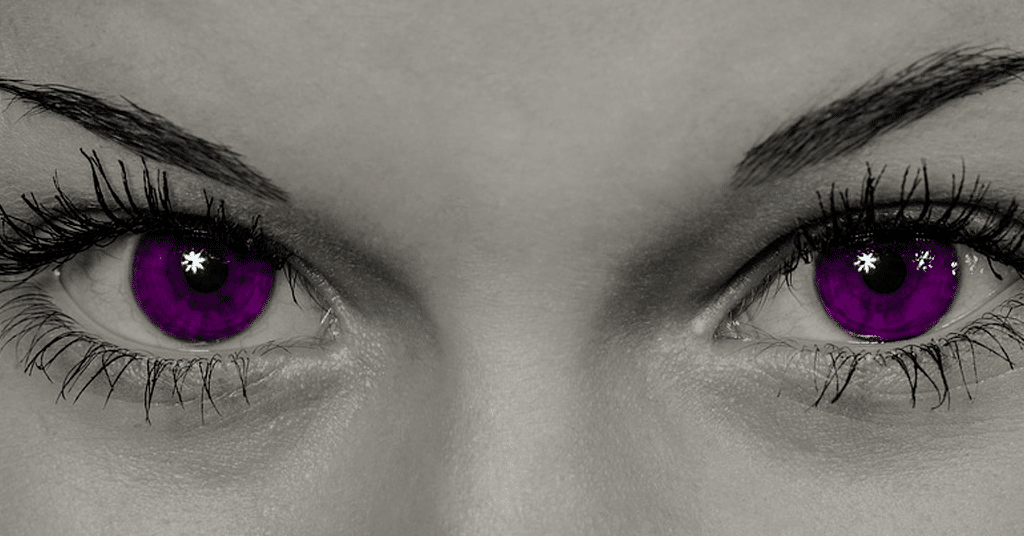

Even the most well-adjusted people have frightening or distressing dreams now and again. Sometimes, you might find yourself having unusually frequent nightmares or even repeatedly experience the same awful dream. In the worst cases, you can end up with disturbed sleep and images from your nightmares may haunt you for the rest of the day. But can you learn anything about yourself by thinking about the themes of these sorts of dreams? Sleep studies and psychological research suggest that you can and that your nightmares may, in fact, be a very useful guide to unmet needs and unresolved issues in your life.
If you've ever asked yourself “what do my dreams mean?”, this beginner's guide will help you get a handle on any underlying messages from your subconscious. We'll explore the nature of nightmares, and then look at what an expert dream analyzer would say about nine of the most common.
Not all negative dreams qualify as nightmares. To be nightmares, bad dreams need to be vivid experiences that make you feel sad or scared. Nightmares take place during the REM (rapid eye movement) phase of sleep, usually after you've been asleep for several hours. Often, it will feel like nightmares last for a particularly long time, and it's common to remember many of the details when you wake.
Nightmares are common in both childhood and adult life. You may experience more of them (or have nightmares that have a greater level of intensity) when you're facing a time of high stress.
If you have a nightmare disorder, you can end up avoiding sleep in order to escape these types of dreams, and you may begin to suffer from chronic exhaustion. If you're worried about the frequency or nature of your dreams, talk to your doctor; sleep specialists and therapists may be able to help with nightmare disorder treatment.
Nightmares come in thousands of different forms, and no two are entirely alike. When it comes to meanings, nightmares are often easier to analyze if you look at the key themes or events taking place.
However, a dream's meaning isn't always as obvious as you might think. As we go through nine of the most common bad dreams meanings, think about when you last had a dream like this (and what was going on in your life at the time). In retrospect, you'll likely be able to see connections between your nightmares and the things that were most troubling to you at the time.
When you first start experimenting with an interpretation of your dreams, you are likely to think that seeing the dead is about missing a specific person or fearing for your own safety.
In some cases (e.g. when you dream about an uncle you lost in the last year), your mind really is just trying to process your grief. At other times (e.g. when you're waiting on the results of important medical tests), you might be struggling with an increased awareness of your own mortality.
However, it's also wise to look beyond the surface here. For example, dream specialists say that seeing dead people in your dreams can indicate a general difficulty with letting something go; that could be anything from a job to a relationship or a house.
So, if there is no particularly emotionally evocative content to your dream, think instead about something from which you might be afraid to move on.
When nightmares are explained, their meanings can sound baffling at first. Dreams about losing your teeth are a good example. A shockingly large number of people have had at least one nightmare in which their teeth began to fall out or were forcibly removed. Most of the research around this type of dream suggests that it relates to some type of underlying insecurity or anxiety. For example, perhaps you're about to leave your comfort zone for some reason. Or, maybe, you're feeling like you're falling short of expectations in some important part of your life.
On the other hand, nightmares about losing teeth can also be linked to insecurities about physical appearance. Perhaps you might have recently felt unattractive, or maybe you're having difficulty with the way you're changing as you get older.
Ask yourself what might be making you insecure, and come up with 3-5 things you can do to tackle this anxiety.
If you're in a generally happy relationship, the idea of your partner leaving might be one of the very worst things you imagine.
First, it's important to look at your relationship and consider what might be making you feel less secure. In some cases, the origin of your fears will be obvious (e.g. worries about infidelity). At other times, it might only be on reflection that you realize your fear you're not good enough for your partner. If the latter is the case, consider where these negative messages might be coming from in your past.
If you're not in a relationship but you dream that you are with a partner and are subsequently left, this can indicate that you're anxious about the possibility of never meeting the right person. However, there's always room to be proactive in looking for love; you just have to be willing to take a few calculated risks!
There are lots of different ways you can be wounded in a dream. Your nightmare might involve anything from a painful cut to a disfiguring accident or to major burns. In all cases, the prevailing theory is that dreams about injuries are usually connected to feeling weak or powerless in some aspect of your life. This is particularly likely if you dream about having a broken leg or another major fracture.
Ask yourself where you might be feeling weak, and why. If you work on the source of weakness, you're less likely to have this nightmare again in the future.
As with nightmares about teeth, dreaming that you're injured in a way that has a huge impact on your looks can also signal insecurities about your appearance. For example, perhaps you are worried that someone only values you for your looks (and that if you didn't have them, you would not be worthy of love).
If you have a phobia of being trapped, you're not alone. As well as being a common fear, this is also a frequent nightmare for many people, and it can mean a variety of different things. Sometimes, it merely reflects your phobia, in the same way, that dreaming of spiders might relate to your irrational fear of these insects.
That being said, nightmares about being physically trapped can also be a sign that you feel psychologically trapped in some way.
You might feel trapped in an unfulfilling relationship, or you may feel hemmed in by debt, limited at work, or stuck in a particular location. As with the above nightmares, addressing the “stuckness” in your waking life can stop the dreams.
And if you can't change your circumstances, perhaps changing your perspective on them might be enough. Challenge yourself to think of 5 good things about the place you're currently at in life.
Just as dreaming about flying is one of the most commonly reported positive dreams, many people experience awful nightmares about falling. Whether you fall down from something, fall out of a plane or just find yourself falling with no explanation, you can wake up with a racing heart and a deep feeling of helplessness.
Often, the sources of these nightmares will be a degree of anxiety you feel in your waking life; worries about being out of control in some way, with an underlying feeling that a negative outcome is inevitable.
Just remember that no matter what your circumstances, there's always room to exercise your agency and work towards something better. When you've figured out what makes you feel out of control, look for at least one thing you can control. And if there truly is nothing you can change, consciously turn your energy towards a different area of your life; one you can influence.
If you speak to psychologists who specialize in dreams, they'll tell you that the most frequently reported nightmares involved being chased or attacked. You might be running from monsters, hurt by people you know, or in peril due to the actions of strangers.
In all such cases, the underlying theme is most likely to be fear; often of confrontation, and what it could mean.
This could be a highly personal type of confrontation (e.g. one with a partner), a professional confrontation with high stakes (e.g. one with a boss), or it might even be that you're scared of any and all forms of conflict.
When you're being chased, what this tells you is that you're trying to evade conflict, but that deep down you know it's likely something you have to face. The key is to face it on your own terms and to give some serious thought to the main points you want to make to the other person.
If your sleep is affected by this, you could try a self-hypnosis download to improve sleep.
The classic nudity dream involves suddenly finding yourself naked in front of your old high school class, or during a work presentation. This is a nightmare that can sound funny in the abstract, but when experienced, is very humiliating and degrading. The message from these sorts of dreams is that you're afraid of being judged (whether by one person or more broadly) and you just want to stop worrying about what others think.
And if you have this nightmare on a regular basis, it could be that fear of judgment is actually holding you back.
It is only when you learn to live in an authentic way that you can truly find and follow your purpose. If you spend all your time trying to please others, you lose sight of what you really want. It can be helpful to consider that you likely give a great deal more thought to the question of how people see you than these people themselves actually give to judging you.
Finally, missing important events is common nightmare fuel. It could be an exam, your wedding, a job interview, a medical appointment or anything else that matters a great deal to you.
Regardless of what the event is, the nightmare will likely revolve around you feeling stressed, mortified, and sad. Unsurprisingly, the theme here is about expectations and your worries that you might not be able to live up to some such expectations.
If you frequently dream about missing important events, ask yourself what expectations make you feel anxious.
Are they personal or professional? Life-long or recent? Answering these questions will give you a clue as to whether you need to do some self-reflective work on your early life or rather just need to take a critical look at the present. It can also be useful to think about the contrast between expectations and reality. Do you think you have realistic expectations of yourself, or are you a perfectionist?
